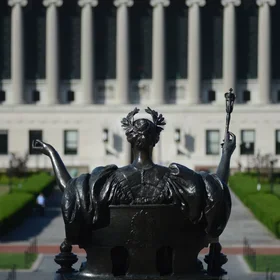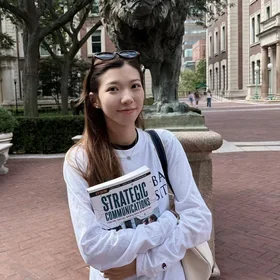The U.S. focus on the COVID-19 pandemic initially seemed to cast a shadow over concurrent issues faced by the nation. Out from the shadows, civil outrage in response to police violence and murder against unarmed Black men has resurfaced. This pre-existing problem, known by many Black Americans, now has a wider, more quarantined, diverse, and captive audience.
In her recent publication in The American Journal of Bioethics, COVID-19 and an Outbreak of Civil Unrest, M.S. in Bioethics candidate Anne Zimmerman, J.D., draws attention to the structural inequalities that compound the economic and physical effects of COVID-19 and police violence faced by Black Americans.
For example, her article brings data to showcase how structural inequalities lead to the likelihood of the development of comorbidities that place Black Americans at greater detriment if they contract COVID-19.
In a country that is comprised of 12 to 14 percent people that identify as Black, depending on the definition, the COVID-19 mortality represents structural inequality.”
Anne Zimmerman, J.D., Candidate - M.S. in Bioethics Program
Further, Anne’s article highlights the systematically induced cycle of cause and effect that disadvantages Black Americans and other minorities. “The current civil outrage is evidence that violence against unarmed Black men carries on concurrently with COVID-19’s economic and physical devastation that hurts the poor and the darker-skinned disproportionately,” wrote Anne. By addressing the contributing roles of an inegalitarian hierarchy, presenting statistical data on minority COVID-19 fatalities, and explaining the changes sought by protestors through genuine empathy, Anne’s piece offers specific suggestions on how racism can be addressed structurally. You can read the full publication here.
Learn more about the M.S. in Bioethics program at Columbia University.


